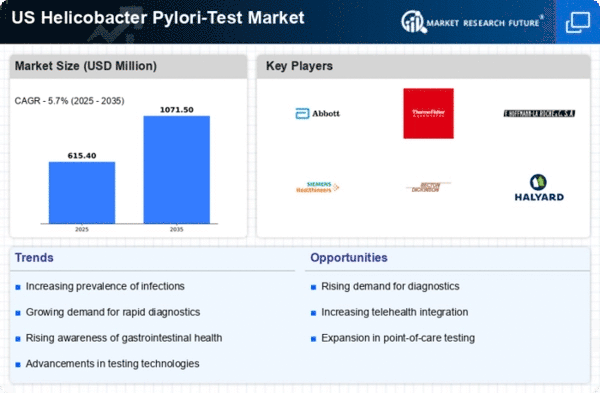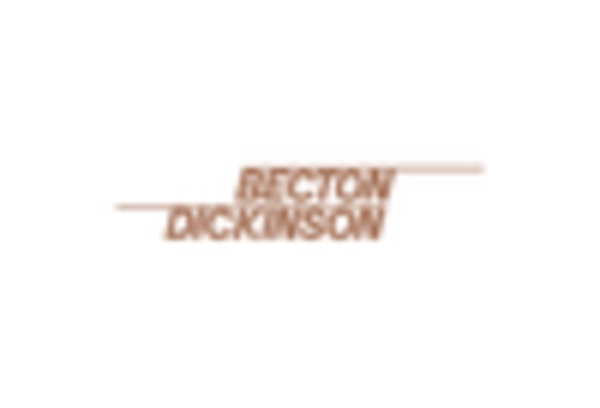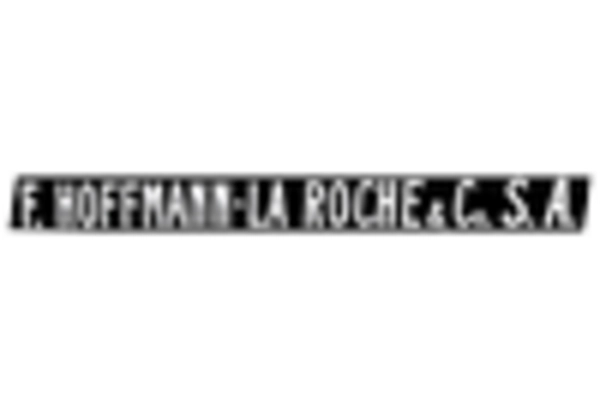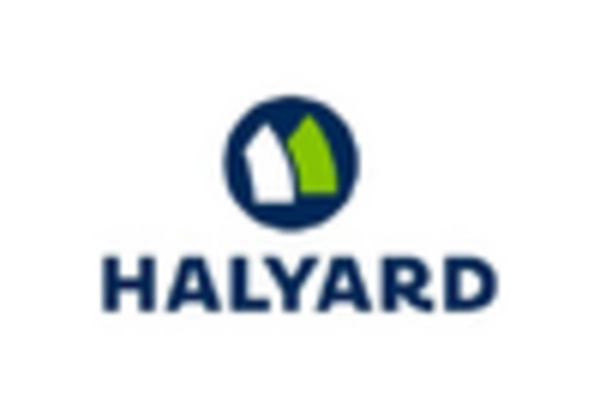Rising Healthcare Expenditure
The increase in healthcare expenditure in the US is likely to bolster the helicobacter pylori-test market. As individuals and families allocate more resources towards health services, there is a corresponding rise in the demand for diagnostic tests, including those for H. pylori. According to recent data, healthcare spending in the US has been projected to grow at an annual rate of 5.4%, reaching approximately $6 trillion by 2027. This financial commitment to health services may lead to greater accessibility and affordability of testing options, encouraging more patients to seek diagnosis and treatment for H. pylori infections. Consequently, the helicobacter pylori-test market stands to gain from this upward trend in healthcare investment.
Growing Focus on Preventive Healthcare
The shift towards preventive healthcare in the US is a significant factor driving the helicobacter pylori-test market. With an increasing emphasis on early detection and management of health conditions, healthcare providers are advocating for routine screening for H. pylori, especially in high-risk populations. This proactive approach is expected to lead to a higher uptake of testing services, as patients become more engaged in their health management. The market could see a notable increase in demand as healthcare policies evolve to support preventive measures, potentially reducing the burden of gastrointestinal diseases associated with H. pylori. As a result, the helicobacter pylori-test market may benefit from this growing trend in preventive healthcare.
Advancements in Diagnostic Technologies
Technological innovations in diagnostic testing are significantly influencing the helicobacter pylori-test market. The introduction of non-invasive testing methods, such as breath tests and stool antigen tests, has made it easier for patients to undergo screening. These advancements not only enhance patient comfort but also improve the accuracy and speed of diagnosis. For instance, the breath test has shown a sensitivity of over 90% in detecting H. pylori infections. As healthcare facilities adopt these advanced technologies, the market is likely to experience growth, driven by the increasing preference for rapid and reliable testing solutions. Furthermore, the integration of digital health technologies may facilitate remote testing and monitoring, further propelling market expansion.
Increasing Prevalence of Helicobacter Pylori Infections
The rising incidence of Helicobacter pylori infections in the US is a crucial driver for the helicobacter pylori-test market. Studies indicate that approximately 30-40% of the US population may be infected with this bacterium, which is linked to various gastrointestinal disorders, including peptic ulcers and gastric cancer. As awareness of these health issues grows, the demand for accurate and efficient testing methods is likely to increase. This trend is further supported by healthcare providers emphasizing the importance of early detection and treatment, which could potentially reduce the long-term healthcare costs associated with untreated infections. Consequently, the helicobacter pylori-test market is expected to expand as more individuals seek testing to confirm or rule out infections.
Increased Collaboration Between Healthcare Providers and Laboratories
The growing collaboration between healthcare providers and diagnostic laboratories is a notable driver for the helicobacter pylori-test market. As healthcare systems strive for improved patient outcomes, partnerships are being formed to streamline testing processes and enhance the quality of care. These collaborations often result in the development of integrated testing pathways, which can facilitate quicker diagnosis and treatment initiation for H. pylori infections. Additionally, shared resources and expertise can lead to innovations in testing methodologies, further advancing the market. This synergy between providers and laboratories is likely to foster a more efficient healthcare environment, ultimately benefiting the helicobacter pylori-test market.
















